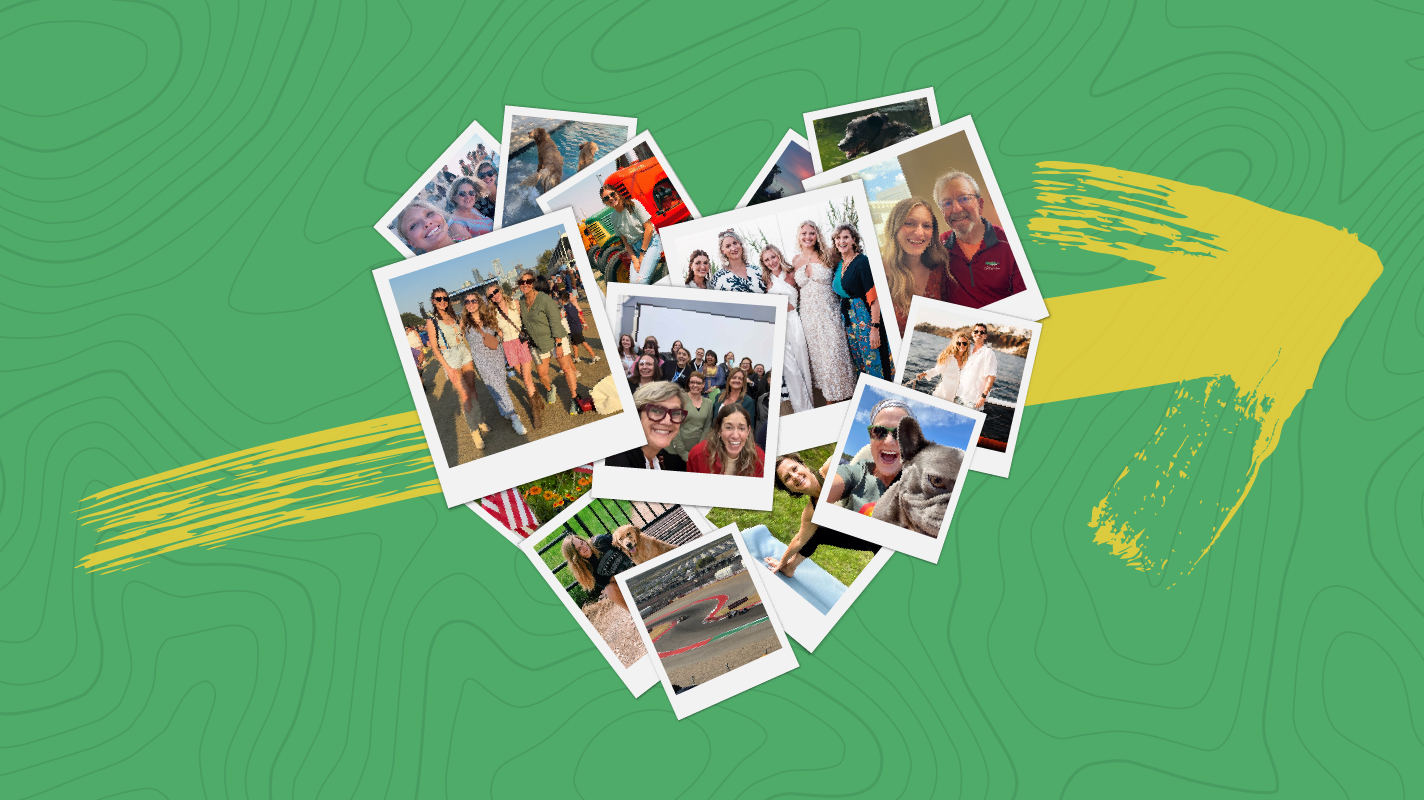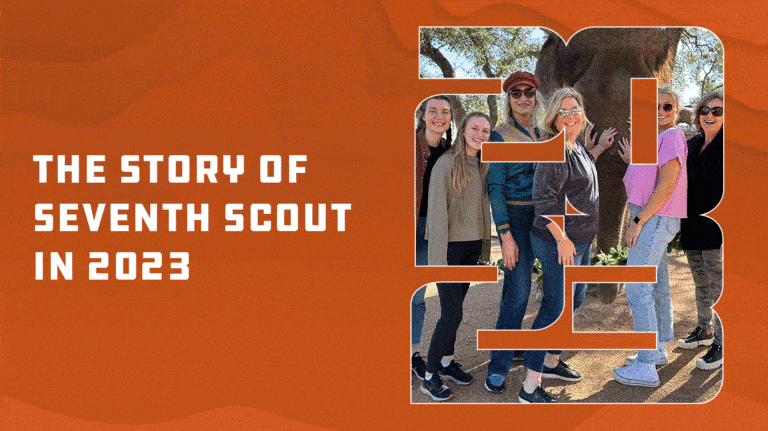At Seventh Scout, we believe the best work comes from a team that feels supported, connected, and whole. That’s why every year, since 2021, we shut down the agency for our Restorative Week.
What might look like “just a week off” is one of our most important agency culture traditions we’ve made. Its origins are in grief and exhaustion, but it has grown into a practice that sustains us, strengthens our client partnerships, and reminds us why we do this work in the first place.
Where It Started
The first Restorative Week was born out of necessity, not strategy. In 2021, we were carrying more than client work. We were carrying the weight of loss, grieving the passing of our founder, Rhodes Gibson, while also navigating a pandemic, remote work transitions, and the everyday pressures of running a business.
The team was tired, and we knew that pushing through would not serve anyone, least of all the clients who depended on us.
So we decided to do something unusual. We closed our laptops, blocked off our calendars, and told our clients our truth: we needed space to breathe. We weren’t sure how they would respond. In fact, we braced ourselves for pushback, maybe even the risk of losing work. Instead, what we found was understanding… and something even more surprising: respect.
That first year, it felt like survival. We didn’t have a polished narrative for it. It wasn’t a branding exercise. It was simply self-preservation and a way to keep going in the midst of sadness and exhaustion. But what we thought might jeopardize relationships actually secured our foundation. Clients didn’t walk away. They stayed. And from there, it grew.
Restorative Week and Our Values
Over time, Restorative Week has become more than a break. It has become a defining ritual that expresses who we are as a values-driven marketing agency.
Our values at Seventh Scout are simple: Be Nice. Make Better. They’re not just a tagline on a website. They’re a daily reminder of how we want to work with kindness, integrity, and a commitment to improvement.
Restorative Week is a natural extension of those values. By taking time to restore ourselves, we make it possible to show up better for each other and for the clients who trust us. We remind ourselves that sustainable creativity requires space, not just effort. We continuously come back clearer, sharper, and more connected.
And the more we’ve practiced this, the more we’ve seen how much it matters. Teams can only give what they have. Taking care of ourselves isn’t an indulgence, but rather a responsibility in building a resilient team culture that lasts.
What It Looks Like in Practice
Each year, the team votes on when we take our restorative week. We prepare for it just as carefully as we would any major client project. We communicate early, letting our clients know when it will happen and how their needs will be supported before, during, and after. We make sure no deadlines are left dangling. And then, with trust (and a few contractors) in place, we step away.
Some team members travel. Others stay close to home. Some finally get to that stack of books waiting on the nightstand, some focus on family, some simply rest. The form it takes doesn’t matter as much as the freedom it provides.
What matters most is what happens when we return. New ideas surface. Projects that once felt heavy move forward with ease. Conversations are more creative, more open. The atmosphere shifts. It’s subtle but undeniable because when people are restored, they bring a different kind of energy to the work.
Client Reactions
One of the questions we’re often asked is: “Sure the team loves it, but what do your clients think?”
The truth is, our clients notice. And far from being put off, they’ve responded with admiration. Many have told us they wish their organizations would implement something similar. Some have even borrowed the idea for their own teams.
Restorative Week hasn’t hurt our relationships but rather strengthened them. It has become a quiet marker of the kind of long-term client relationships we strive to build: those rooted in trust, respect, and a shared understanding that good work requires balance.
By modeling what it looks like to value rest as much as productivity, we attract clients who share that mindset. In other words, the pause itself has become part of our business development strategy.
Looking Back, Looking Ahead
When we look back on that first Restorative Week, it’s remarkable how something born from sadness has become a source of strength. What started as an experiment in survival is now one of the clearest reflections of who we are.
Over the years, we’ve captured moments and photos of team members in different places, snapshots of rest and joy, reflections that remind us why this matters. Those images tell the story better than words alone. They show a team that is human, connected, and committed to each other. They show a business that doesn’t just talk about agency values but builds them into practice.
Why It Matters to Our Clients
If you’re visiting this page as a client or a potential client, you might be wondering: what does Restorative Week mean for me?
It means you’re working with a team that takes sustainability seriously. We don’t believe in burnout as a badge of honor. We believe in clarity, creativity, and work-life balance in marketing.
When you choose Seventh Scout, you’re choosing a human-centered marketing agency that delivers results without losing sight of what makes those results possible: people. Restorative Week is one way we live that out.
We invite you to browse the gallery below as these snapshots tell the story of a company that believes in making space, making better, and always choosing to build with heart.



